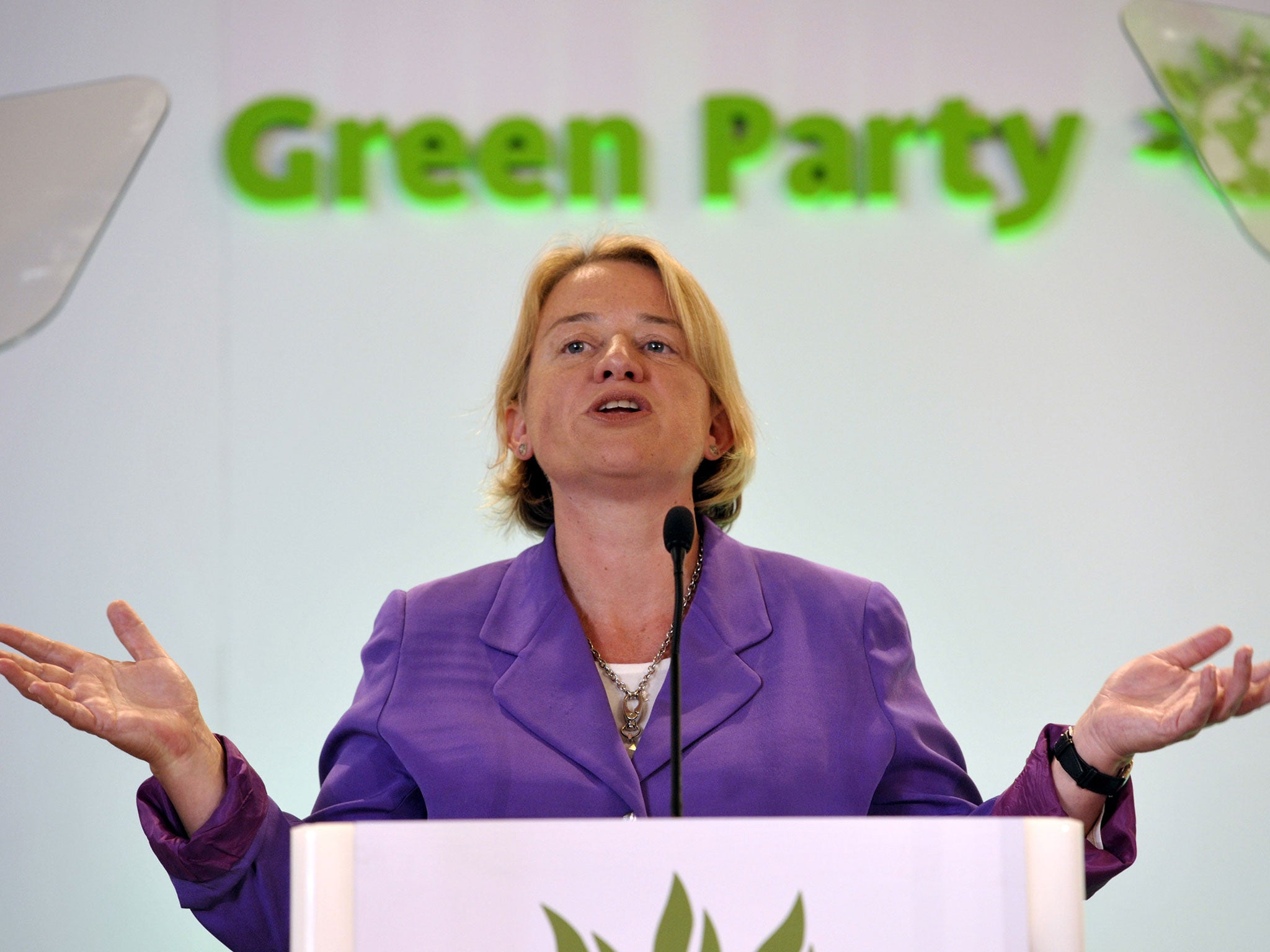If people voted for policies, the Green Party would win the next election
So why are they fifth in the regular opinion polls?

Your support helps us to tell the story
From reproductive rights to climate change to Big Tech, The Independent is on the ground when the story is developing. Whether it's investigating the financials of Elon Musk's pro-Trump PAC or producing our latest documentary, 'The A Word', which shines a light on the American women fighting for reproductive rights, we know how important it is to parse out the facts from the messaging.
At such a critical moment in US history, we need reporters on the ground. Your donation allows us to keep sending journalists to speak to both sides of the story.
The Independent is trusted by Americans across the entire political spectrum. And unlike many other quality news outlets, we choose not to lock Americans out of our reporting and analysis with paywalls. We believe quality journalism should be available to everyone, paid for by those who can afford it.
Your support makes all the difference.Following the Rochester by-election we find ourselves in a political landscape where Ukip are becoming more and more popular. The latest opinion polls give them 15-18 per cent of the vote, putting them third, ahead of the Lib Dems.
But how much of this is about media exposure, protest votes and right wing dissatisfaction with the Tories, and how much is actually about their policies? What if we could see a poll based solely on policies? Who would be winning that, and where would Ukip come?
Well it just so happens we can, and the results, taken from nearly half a million people, are enlightening to say the least.
They go like this – Green Party 26.35 per cent, Labour 20.12 per cent, Lib Dems 17 per cent, Conservatives 14 per cent, UKIP 12 per cent, BNP 10 per cent. That’s the Greens up from fifth to first, the Conservatives down from second to fourth and Ukip bringing up the rear with the BNP.
Voteforpolicies.org.uk is responsible for the poll in question, a social enterprise set up with the goal of engaging more people in the political process. It works by asking people to make blind choices for parties, based on their policies in key areas. Okay, so it’s not totally blind, as it’s quite simple to tell which policy belongs to which party in the most obvious areas - like the Greens on environment, the BNP on Immigration or Ukip on Europe - but in areas like democracy, crime and education, the differences can be far less evident.
It does leave some questions unanswered however: if the Greens are the most popular party based on policies, why are they fifth in the regular opinion polls, with just 5 per cent? And why are Ukip plunging the depths at second from bottom, rather than reaching for the skies in third? The answer must be media coverage.
Nothing proves the adage that any publicity is better than no publicity better than Ukip. This was summed up most succinctly by Ukip’s newest MP Mark Reckless, who was caught on film just before the by-election espousing an immigration policy towards which was dodgy even by Ukip’s standards, yet he still won the seat. It just serves to prove, it doesn’t matter what you condone, as long as it gets you on TV.
On the other hand, the Greens are the beggars at the media banquet. This is because good news is no news. The fact that the Green MP Caroline Lucas, for example, fights for her constituents and sticks up for the things she believes in, doesn’t get her many headlines.
The other reason, of course, is our ridiculous electoral system which means if you live in certain parts of the country, any vote but one or two is wasted, thus destroying the very notion of democracy.
What can we do about this? In the long run, we need to move to the Alternative Vote system, but what about for the forthcoming election? How can we overcome the cynical and apathetic ‘tactical voting’ which the system enforces on us?
It is a matter of faith – faith in ourselves to vote for the party whose policies we actually believe in, and faith in others that they will do the same. This kind of faith is based on confidence in solidarity. Sites like voteforpolicies.org.uk should give us that confidence that enough people want real change based on rational decision making, not just media hype or over-simplistic scapegoating.
Join our commenting forum
Join thought-provoking conversations, follow other Independent readers and see their replies
Comments